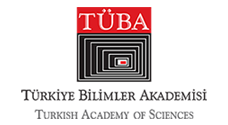Can Global Value Chain Participation Mitigate Conflict Between Nations in the Global Transformation Age?
Can Global Value Chain Participation Mitigate Conflict Between Nations in the Global Transformation Age?
This study investigates the impacts of the global value chain (GVC) participation on conflicts across nations. The first novelty of this study is to observe the impacts of GVC participation on conflicts. In other words, the trade statistics are not conventional, but they track true domestic value-added embedded in exports and true foreign value-added embedded in imports, which provides a more accurate way to measure trade values. Secondly, the comprehensive data set enables us to include 188 countries and to conduct disaggregated analysis via the heterogeneity across sectors. The findings indicate that bilateral GVC participation has a significantly negative impact on the number of conflicts regardless of sector groups. The multilateral GVC participation of manufacturing and service sectors also decreases the number of conflicts across the countries. In other words, greater GVC activities can foster economic interdependence and peace because countries with close economic relations are less likely to wage war on one another due to the associated costs. Moreover, GVC participation may allow countries to access resources that are not available domestically. Therefore, trade can alleviate a potential cause of conflict. Regarding control variables, membership in the GATT, distance, common language, and polity measures are negatively associated with the number of conflicts whereas contiguity, common border, landlocked, and common colony are positively correlated with the number of conflicts. The findings are quite robust to a couple of robustness checks: different dependent variables, different samples, and 5-year (moving) averages. Therefore, we can argue that enlarging and deepening world trade negotiations and policies emphasizing peace might help to decrease tensions.
Click to cite.
Note: You can access the citation text via the ‘Actions’ tab in Crossref.
